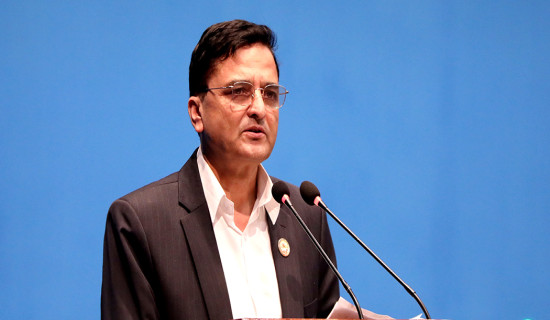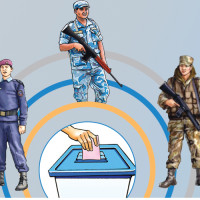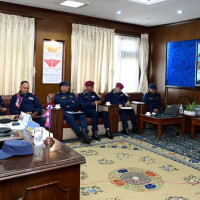- Sunday, 1 March 2026
Swatantra Party unveils election manifesto
By A Staff Reporter
Kathmandu, Nov. 4: The Rastriya Swatantra Party has unveiled its manifesto for November 20 elections to the House of Representatives.
The party, led by media personality Rabi Lamichhane, released its manifesto, which it called its ‘document of pledges’, amid a programme organised in the capital on Thursday.
Through the document, the party has made many promises regarding the country’s governance, economics, education, health and society. It has promised to set up an electoral college comprising elected representatives from all levels of government – from “the ward chairperson to the federal parliamentarian,” as it states – to elect the president.
It also promises to make the vice president the chair of the National Assembly and have directly elected prime minister and chief ministers. If the party gets its way, the National Assembly itself will only have 35 members who have not been affiliated with any political party for at least six years, the manifesto states.
The party also intends to scrap the District Coordination Committees, the provincial assemblies and the Constitutional Council. In place of the existing provincial assemblies, the Swatantra Party wants to establish 21 to 35-member Provincial Councils elected by members of the local levels’ assemblies. And instead of the Constitutional Council, it wants chiefs of constitutional bodies to be recommended by the National Assembly and confirmed by the House of Representatives.
However, it must be noted that Lamichhane’s party can only enact these changes if it is able to get a two-thirds of the members of both the Houses of federal parliament on its side.
As outlined in the manifesto, the party has also promised to enable citizens living outside the country to exercise their right to vote through absentee ballots and give voters the right to reject and right to recall.
Meanwhile, the party has credited the major political parties for all the political progress the country has achieved to date and has thanked them for it. But it has also blamed them for threatening democracy and increasing corruption and has claimed that hatred for the parties is at an all-time high.
It highlights political instability, unconstitutional dissolution of the House of Representatives, carelessness in handling the foreign relations during the Millennium Challenge Corporation (MCC) debate, political meddling in the citizenship issue, irresponsible state behaviour during the COVID-19 pandemic, alleged external influence during the drafting of this fiscal year’s budget, the allegations raised against the judiciary and the lack of attention to provincial structures as examples of the parties’ failure over the past five years.



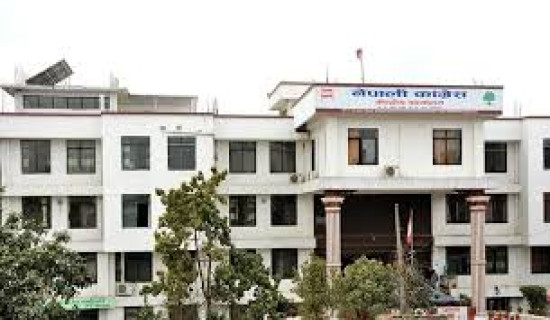
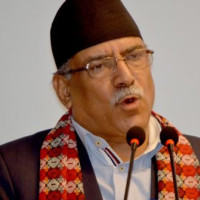
-square-thumb.jpg)
